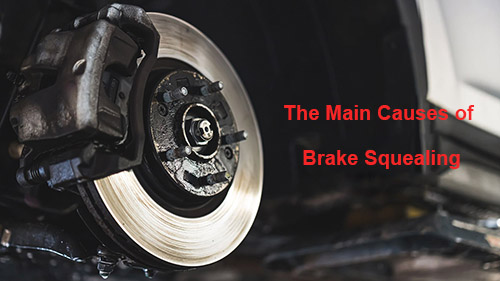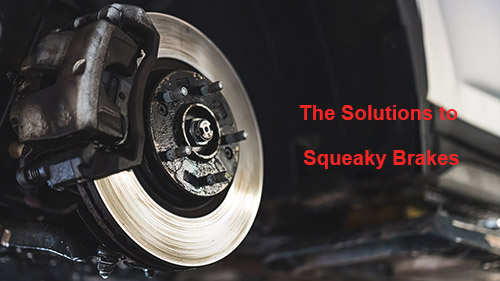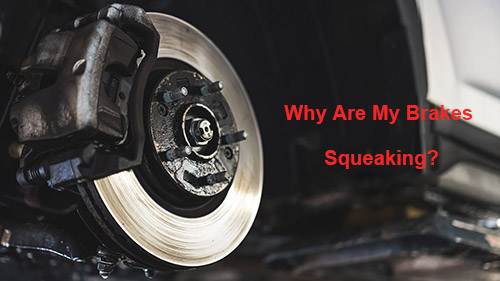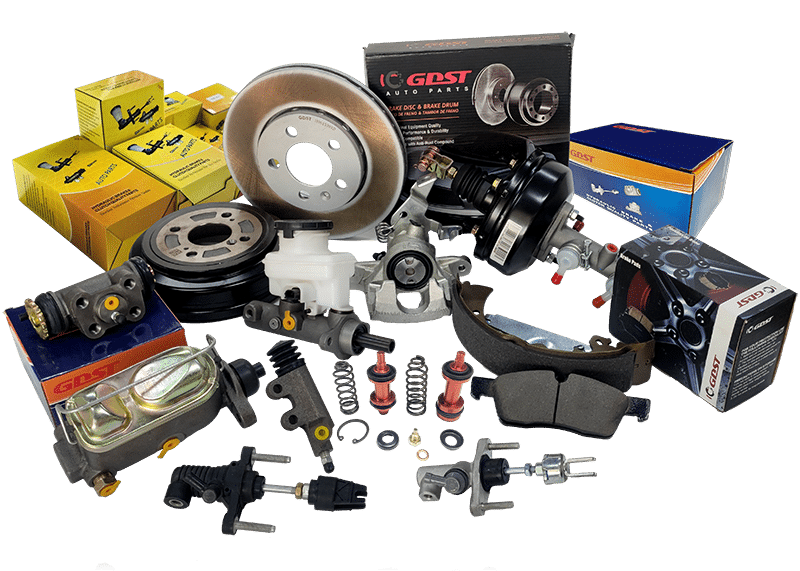Have you ever heard a squealing noise when you apply brakes while driving?
Maybe you are confused and worried about it because you’re not sure why your brakes are squeaking and if this is a serious problem.
To help you figure out if this squealing noise is normal, we’ve written this article to help you find out why and how to deal with it.
The Main Causes of Brake Squealing

Normally, the brakes produce certain sounds which are usually low and even when working, indicating that the contact between brake pads and discs/drums is smooth and effective.
However, if the brakes make a sharp, harsh, or irregular squealing sound, then this is likely to signal an abnormal condition.
Many reasons are causing brake squealing sounds, and here we list a few of the more common ones:
New Brake Pads Break-in Period
Have you ever experienced that your newly replaced brake pads still make noise?
When new brake pads are first installed, the uneven surface and tiny particles may cause a slight squeaking sound.
This is a normal phenomenon, and as brake pads and brake discs gradually break in, the sound will usually diminish and eventually disappear.
Worn Brake Pads
Brake pads go through a gradual wear process as the vehicle’s mileage increases.
When brake pads reach the end of their lifespan, the internal metal backing plate will come into direct contact with the surface of the brake disc.
This direct metal-to-metal contact results in a sharp, piercing sound, which is a clear warning from the braking system, that you should replace new brake pads.
Brake Pad Materials
Different brake pad materials have different noise levels, generally ceramic is the quietest, and semi-metallic is slightly noisier.
However low-quality or inappropriate brake pad materials may be more likely to produce noise during braking.
These materials may not match the brake discs well, resulting in uneven friction and rattling.
Uneven Surface of Brake Disc/Drum
Brake discs or drums with surfaces that are unevenly worn, have rust or scratches, etc., may also create noise with the brake pads during braking.
These uneven surfaces can change the way the brake pads make contact with the disc/drum, resulting in uneven friction and noise.
Foreign Things Between Brake Disc and Brake Pad
While driving, things like grit and small stones from the road can sometimes accidentally get between brake pads and brake discs.
If this situation happens, it will make the contact between the brake pads and discs uneven.
This results in abnormal wear and tear when braking and strange noises.
Humidity and Temperature Changes
Changes in humidity and temperature may also affect the sound of the brake system.
After rain or in high humidity conditions, brake pads may swell as they absorb water, changing the way to contact brake discs, and resulting in a short-lived squealing sound.
In addition, at low temperatures, the viscosity of the brake fluid may increase, affecting the performance and sound of the brake system.
Improperly Installed Brake System
The quality of the brake system’s installation also has a significant impact on its performance and sound.
If installation problems such as incorrect brake pad installation position, loose calipers, or untightened set screws exist, they may cause the brake system to produce noise.
The Solutions to Squeaky Brakes

When your brakes squeal, don’t worry too much, and don’t ignore it, here are some effective ways to fix the squeal:
Inspect and replace worn brake pads
Brake pads are brake parts that are more prone to wear.
We need to check the thickness of the brake pads regularly, and if we find that they are particularly worn, we need to replace them immediately.
Clean the brake system
Foreign matter between brake pads and discs is a common cause of rattling.
Keep the surface of the brake pads and discs clean and dry by carefully removing grit, stones, and other foreign matter from the brake system using special cleaners and tools.
This will restore normal contact between them and reduce the noise.
Sand or replace your brake discs
If the surface of brake disc is uneven, rusted, or scratched, consider sanding it to restore its flatness.
If the problem persists after sanding or if the brake disc is badly worn, you can simply replace it with a new one.
This will ensure a good match and stable performance between brake pads and discs.
Let Our GDST Brake Pads Match Your Brakes!
If you need high-quality brake pads, please feel free to contact us at GDST, a professional manufacturer of brake pads in China, offering over 4000 models with 1-year warranty.



